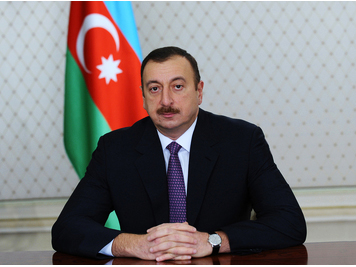Baku, Azerbaijan, Sept. 29
Trend:
The main threat to regional security is Armenia's aggressive policy against Azerbaijan, Azerbaijani President Ilham Aliyev said at an expanded meeting within the fourth Caspian Summit in Astrakhan (Russia) Sept. 29, Russia 24 TV channel reports.
The president reminded that Azerbaijan's native land Nagorno Karabakh and seven other adjacent regions of the country are under Armenian occupation for more than 20 years.
"As a result of Armenia's ethnic cleansing policy against Azerbaijanis, more than one million people became refugees and IDPs," he said.
"The UN Security Council adopted four resolutions demanding immediate and unconditional withdrawal of Armenian troops from the occupied territories. Unfortunately, Armenia continues ignoring them and the conflict remains unresolved," he said. "The conflict must be resolved on the basis of international law and the territorial integrity of Azerbaijan, recognized by the world community."
"Unfortunately, Armenia's current dictatorial regime is unable to clearly see the realities of the modern world and adequately perceive the norms of international law," he said.
"By creating primitive hatred towards Azerbaijan in its society, raising Azerbaijanophobia to a level of state policy, as well as characterizing the Armenian-Azerbaijani Nagorno-Karabakh conflict as an interfaith conflict, the Armenian regime is directly responsible for the possible consequences of delaying the conflict."
The conflict between the two South Caucasus countries began in 1988 when Armenia made territorial claims against Azerbaijan.
As a result of the ensuing war, in 1992 Armenian armed forces occupied 20 percent of Azerbaijan, including the Nagorno-Karabakh region and seven surrounding districts.
The two countries signed a ceasefire agreement in 1994. The co-chairs of the OSCE Minsk Group, Russia, France and the U.S. are currently holding peace negotiations.
Armenia has not yet implemented four U.N. Security Council resolutions on the liberation of the Nagorno-Karabakh and the surrounding regions.
Armenia’s dictatorial regime unable to clearly see modern world's realities
The main threat to regional security is Armenia’s aggressive policy against Azerbaijan, Azerbaijani President Ilham Aliyev said at an expanded meeting within the fourth Caspian Summit in Astrakhan Sept. 29, Russia 24 TV channel reports.






